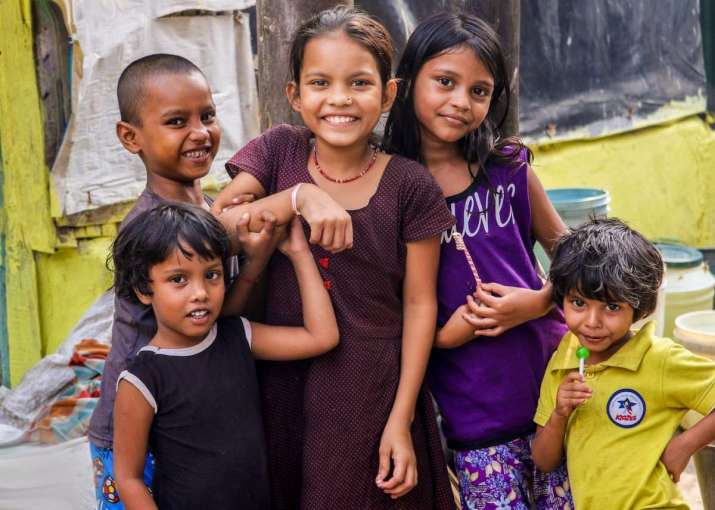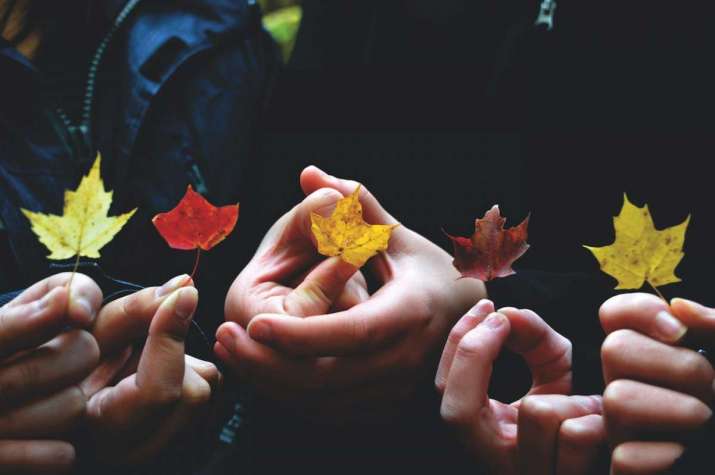FEATURES|COLUMNS|Creativity and Contemplation
The Inner Work of Unraveling Bias – How Meditation Can Help

Photo by Le Minh Phuong
Meditation is a tool or experience that people often use to become calm or to center themselves, yet it is also a way that we can regulate our nervous systems and our thought patterns. When we meditate, we can notice all kinds of recurring thoughts that may be recent or from far back in our personal histories. We may begin to uncover semiconscious biases toward other people or other cultures. During meditation, when we are the sole observer of what arises in our mental experience, we can look courageously at what arises and be curious. We may find certain parts of our mind support the inclusion of all peoples and cultures and yet have other thoughts that are negative toward them. Instead of immediately defending thoughts or hyper-criticizing them, we might make some room for just noticing and being kind toward ourselves in the midst of these uncomfortable discoveries. We can use meditation as a process to dig a little deeper, and perhaps unravel learned biases from our environment or our upbringing.
When so many people around the globe are suffering from being ostracized or blatantly attacked for their race or culture, this is the time to investigate how we might uproot and begin to change discrimination from within. This can only have positive results in our lives when we interact with all kinds of people and work toward equity and equality for all.
 Photo by Analise Benevides
Photo by Analise BenevidesIt is often said that the people who are our greatest teachers are those who push our buttons, upset us in some way, or whom we do not understand. People who are very different from ourselves, whom we may not like or consider our familiars, are those from whom we often have the most to learn. Relationships of all kinds are a vehicle for us to deepen our self-discovery, see our habits clearly, and work toward compassion and inclusion for all peoples and species. Many people around the world are involved in the work of social justice, equity, and inclusion in order to remedy many kinds of intense suffering that marginalized people experience. In our jobs and our schools, and even in the grocery store, there are endless opportunities to practice compassion in action in being kind and inclusive of people different from ourselves.
There are also many workshops and groups designed to bring together people who are committed to internally investigating their own hidden biases and assumptions. This work relies heavily on looking inward as well as sharing in a conscious container to learn new skills and to forgive ourselves (and one another) for the mistakes we make along the way. It can be a bumpy road to travel and yet it really is our only option if we are committed to a better world. Retreating into our own state of comfort is not the answer to truly cultivate compassion for others.
 Photo by Loren Joseph
Photo by Loren JosephAs infants and small children experiencing the material and social worlds through our budding senses, we do not come in with preconceived ideas or biases against others. The young are open and curious. We retain this inner acceptance as a possibility for inclusivity that we can tap into at any time. Children can be our role models, for they often include others effortlessly, at least until they have been taught otherwise by the adults or environments around them.

Photo by Robin Schreiner
When we begin the journey of meditation, it is reasonable that we may focus only on ourselves for a while to tame our monkey mind. However, after weeks or months, we must include others in our prayers and meditation. Our shared planet is quite small and deeply interconnected. Though we may live far from certain peoples, in terms of both geography and understanding, every thought and action we have reverberates outward toward other beings. By meditating and being honest with ourselves about what we find in our minds and then softening the hard edges of negativity, we can cultivate love for everyone on the planet. In this way, our dedication prayers that are directed toward all sentient beings are truly meaningful and heartfelt. In whatever ways we express it, love is the universal human glue. In the words of Thich Nhat Hanh:
Through my love for you, I want to express my love for the whole cosmos, the whole of humanity, and all beings. By living with you, I want to learn to love everyone and all species. If I succeed in loving you, I will be able to love everyone and all species on Earth. . . . This is the real message of love.*
 Photo by Providence Doucet
Photo by Providence DoucetBy investigating and unraveling our internal thought processes that may hinder us from truly including all beings, and through positive prayers and actions, we will, by extension, improve the lives of those with whom we connect, even energetically. Just imagine if everyone on the planet did this for just a few minutes daily. We could each change the collective experience by softening our hearts and allowing space for those we may not understand or feel a tie of kinship. Yet we know that they too deserve safety and contentment in our global family, just as we wish for ourselves.
* Thich Nhat hanh. 2006. Teachings on Love. Berkeley, California: Parallax Press.
Sarah C. Beasley (Sera Kunzang Lhamo), Nautilus Gold award-winning author of Kindness for all Creatures: Buddhist Advice for Compassionate Animal Care (Shambhala 2019), has been a Nyingma practitioner since 2000. Sarah is a Certified Teacher, and an experienced writer and artist, with an MA in Educational Leadership and a BA in Studio Art. Sarah spent six years in traditional retreat under the guidance of Lama Tharchin Rinpoche and Thinley Norbu Rinpoche. With a lifelong passion for wilderness, she has summited Mt. Kenya and Mt. Baker, among other peaks. Her book and other works can be seen at www.sarahcbeasley.com.
Related features from Buddhistdoor Global
For Our Children’s Sake: Dismantling Racism and Bias in Schools
Social Relations and COVID-19
Metta’s Spotlight
Buddhist Principles for a Just Economy
Toward Liberation: Dismantling Racism and Bias in the Sangha














